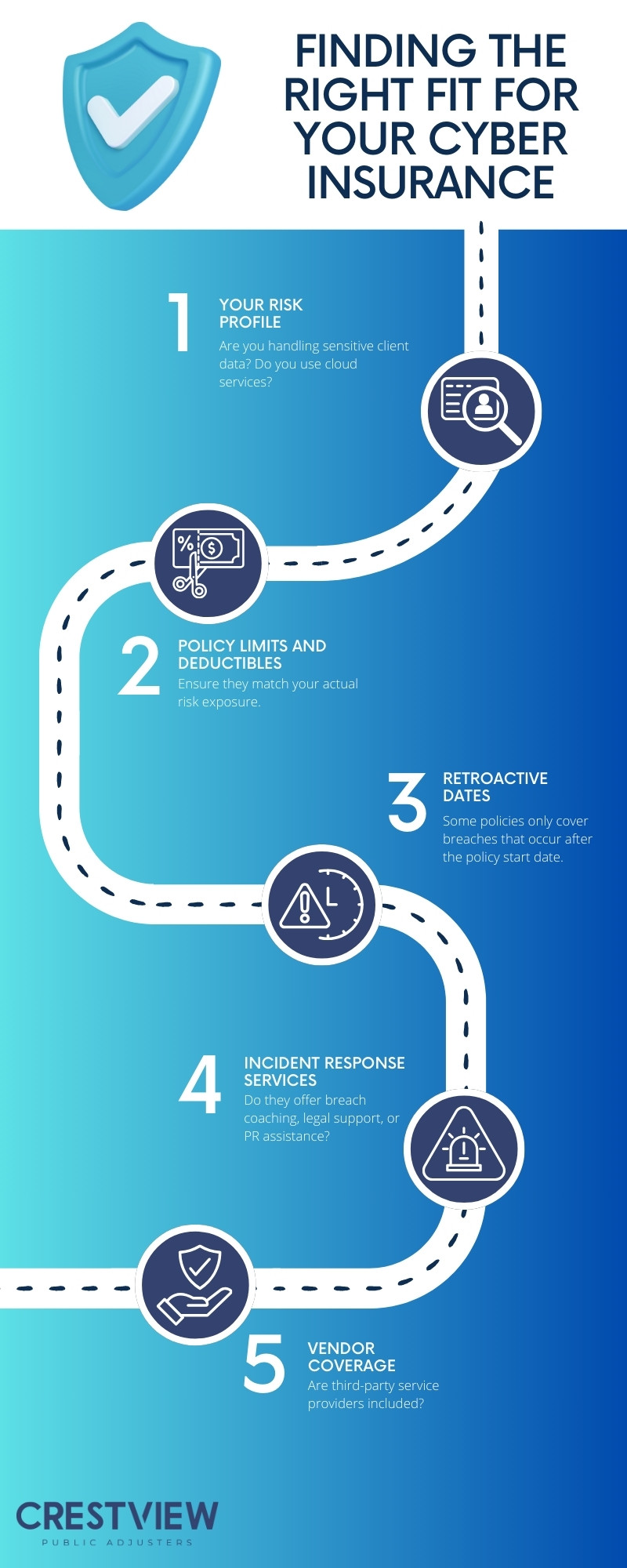Key Points:
- Cyber insurance provides financial protection for businesses and individuals affected by data breaches, ransomware, and other cyber incidents.
- Policies can cover a wide range of risks, including data recovery, business interruption, legal costs, and regulatory fines.
- Understanding your policy’s scope, exclusions, and claim process is crucial for maximizing its value.
Cyber insurance 101 refers to the essential knowledge of how cyber insurance works, what it covers, and why it’s crucial in today’s digital landscape. It is a type of insurance policy that helps businesses recover from cyberattacks, data breaches, and other digital threats. It offers financial coverage and often access to technical resources that can help mitigate damage and ensure business continuity.
As cybercrime surges globally—with cybercrime damages predicted to hit $10.5 trillion annually by 2025—many companies are realizing that traditional insurance does not cover modern digital threats. Cyber insurance has now become as critical as liability or property coverage, especially for data-heavy operations like e-commerce platforms, healthcare providers, and financial institutions.
Why Do You Need Cyber Insurance?
Cyber threats aren’t just limited to big corporations. Small businesses, freelancers, and even individuals are increasingly being targeted by hackers due to weaker defenses.
A data breach or ransomware attack can cause catastrophic damage when it hits. Think lawsuits, data recovery costs, reputation loss, and in some cases, complete operational shutdown. Cyber insurance 101 makes it clear: you don’t just need IT support—you need a financial buffer to handle the aftermath.
Key reasons you need cyber insurance:
- Data Protection: To cover costs of restoring, recovering, or replacing lost or stolen data.
- Breach Response: Covers PR efforts, legal services, and customer notification costs.
- Business Continuity: Offsets lost income during downtime caused by cyber incidents.
- Regulatory Compliance: Helps manage fines and penalties from data protection authorities.
The right policy bridges the gap between technical response and financial loss, and that makes all the difference when facing a cyber crisis.
What Does Cyber Insurance Cover?
Understanding the scope of coverage is a foundational part of cyber insurance 101. Not all policies are created equal, and not all providers offer the same level of protection.
A typical cyber insurance policy may cover:
First-party coverage:
These are direct costs incurred by your business.
- Data recovery expenses
- Business interruption losses
- Cyber extortion (ransomware) payments
- Notification costs for affected individuals
- Crisis communication and public relations
Third-party coverage:
These are legal liabilities from affected customers or partners.
- Lawsuits related to data breaches
- Regulatory penalties
- Legal defense costs
- Payment card industry (PCI) fines and assessments
Some policies even include access to cybersecurity experts and breach response teams. That kind of support can accelerate recovery and reduce long-term losses.

What Is Not Covered by Cyber Insurance?
Not everything that looks like a cyber risk is covered, and part of mastering cyber insurance 101 is understanding the exclusions. Insurers clearly define what they will and will not pay for—and it’s your job to read the fine print.
Common exclusions in cyber insurance policies:
- Acts of war or terrorism (unless specified)
- Prior known breaches or incidents
- Intentional acts by insured individuals
- Outdated systems or unpatched software
- Loss of future profit or value due to reputation damage
If your business is running legacy software, or you’ve been lax with security protocols, your insurer might deny your claim. Being proactive with cybersecurity hygiene isn’t just smart—it’s essential to keep your coverage intact.
How Do You Choose the Right Cyber Insurance Policy?
There’s no one-size-fits-all policy when it comes to cyber coverage. Your choice should be based on the nature of your business, the type of data you store, and your overall risk exposure.

Work with a broker or a public adjuster to ensure your coverage fits your unique operations. Remember, underinsurance can be just as risky as having no policy at all.
How Do You File a Cyber Insurance Claim?
Knowing how to activate your policy when disaster strikes is a critical part of cyber insurance 101. Filing a claim can be complex if you don’t know what’s required upfront.
Steps to file a cyber insurance claim:
- Report the incident immediately to your insurer or claims hotline.
- Document everything—emails, screenshots, logs, and communication related to the breach.
- Engage your incident response team—whether in-house or assigned by the insurer.
- Submit formal notice of claim following your provider’s guidelines.
- Cooperate with the investigation, including forensic analysis and legal review.
- Track all expenses, from IT recovery to legal consultations, for reimbursement.
- Stay compliant with data breach laws and regulatory disclosure rules.
Many claims get delayed or denied simply because of poor documentation or missed timelines. Working with an experienced public adjuster can increase your chances of a full payout.
Who Needs Cyber Insurance the Most?
While every business can benefit from cyber insurance, some industries face higher risks due to the volume and sensitivity of the data they process.
High-risk sectors include:
- Healthcare providers: With large amounts of PHI (Protected Health Information)
- Financial services: Handling customer credit data and transaction records
- E-commerce and retail: Especially those using online payment platforms
- Legal firms: Holding sensitive case files and client data
- Education institutions: Managing student records and personal information
If your business stores customer names, payment info, addresses, or medical records, then cyber insurance isn’t optional—it’s essential.
Is Cyber Insurance Worth It?
Yes, cyber insurance is worth it—if you choose the right policy and understand your responsibilities. The costs of a breach—ransom payments, legal fees, regulatory fines, and reputational damage—can reach six or seven figures.
A well-structured policy doesn’t just fund recovery. It gives you a battle-tested response plan, including IT experts, lawyers, and PR advisors. This can be the difference between bouncing back or shutting down.
Cyber insurance 101 teaches us that prevention is critical, but protection is just as vital. You can’t always stop an attack—but you can be financially prepared when it happens.
What to Look for in a Cyber Insurance Provider
Beyond coverage limits and deductibles, the insurer’s reputation and response time matter. A slow or unhelpful insurer can make a bad situation worse.
Here’s what to look for:
- Proven incident response time
- In-house cyber expertise
- Transparent claims process
- Customized coverage options
- Fair exclusions and conditions
Ask about real-world scenarios they’ve handled and whether they work with third-party public adjusters—because sometimes you’ll need help navigating complex claims.

Protect Your Business — Get Help from a Public Adjuster Who Understands Cyber Claims
A data breach or cyberattack can make navigating the claims process overwhelming—especially while your business is trying to recover. That’s where public adjusters come in. They represent you, not the insurance company, and make sure you get what you’re entitled to under your policy.
Crestview Public Adjusters specializes in handling cyber insurance claims for businesses in New Jersey, New York, and Florida. From documentation to negotiation, they fight to maximize your settlement, contact us today—so you can focus on getting your operations back online.

